People are often badly mistaken about how much the average person earns in the United States. So as a public service, here's a series of charts based on yesterday's release of 2021 income levels from the Census Bureau.
The top chart is to remind everyone that there are lots of different types of wage earners and you have to pay attention to which is which. Individuals are just what they sound like. Households are any group of people living in a single housing unit, whether related or not. Families are groups of related individuals living together.
Note that the median individual income is $37,522. This is for all individuals, including those who have part-time jobs or no job at all, and it's the one that's normally used (including in all the charts below). However, the median income for workers with year-round full-time jobs is $56,473. It's a big difference, and which figure you use depends on what comparison you happen to be interested in.
If you feel like doing some slicing and dicing of your own, all the raw data is here.

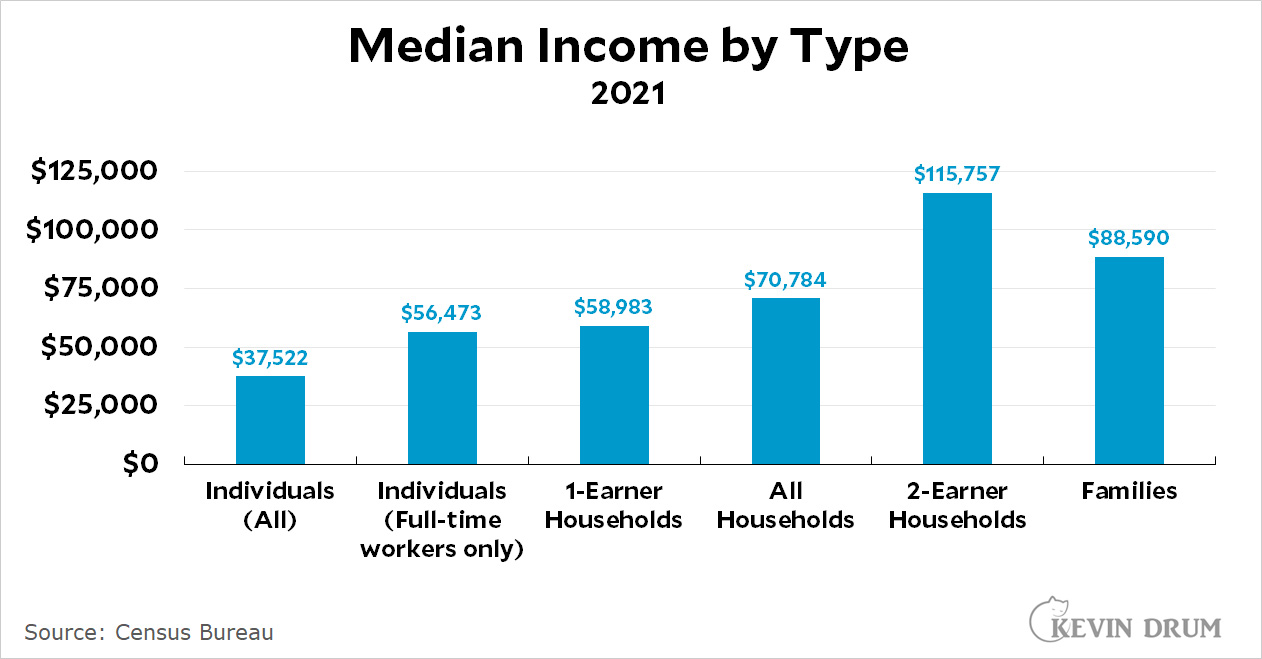
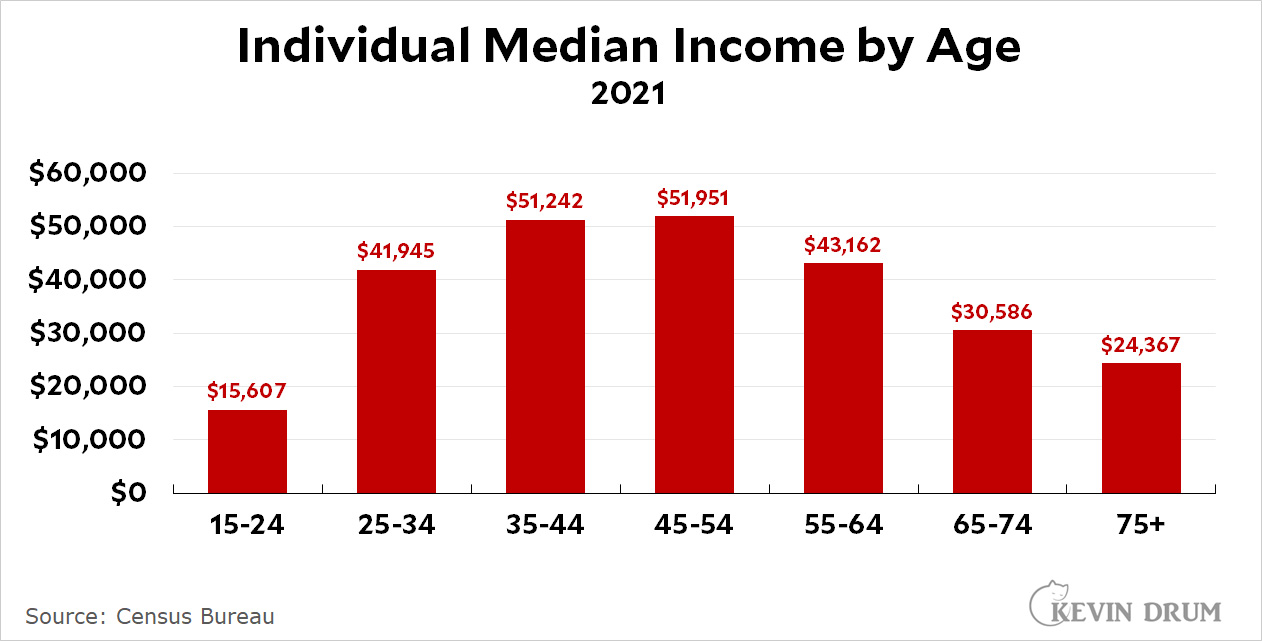
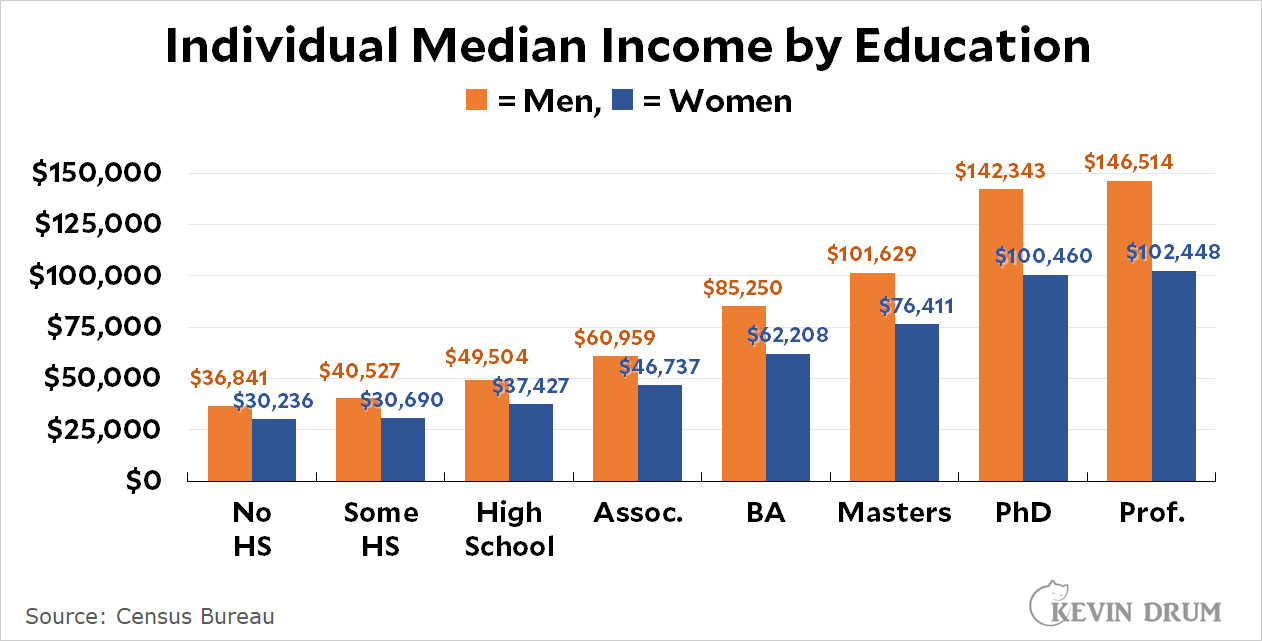
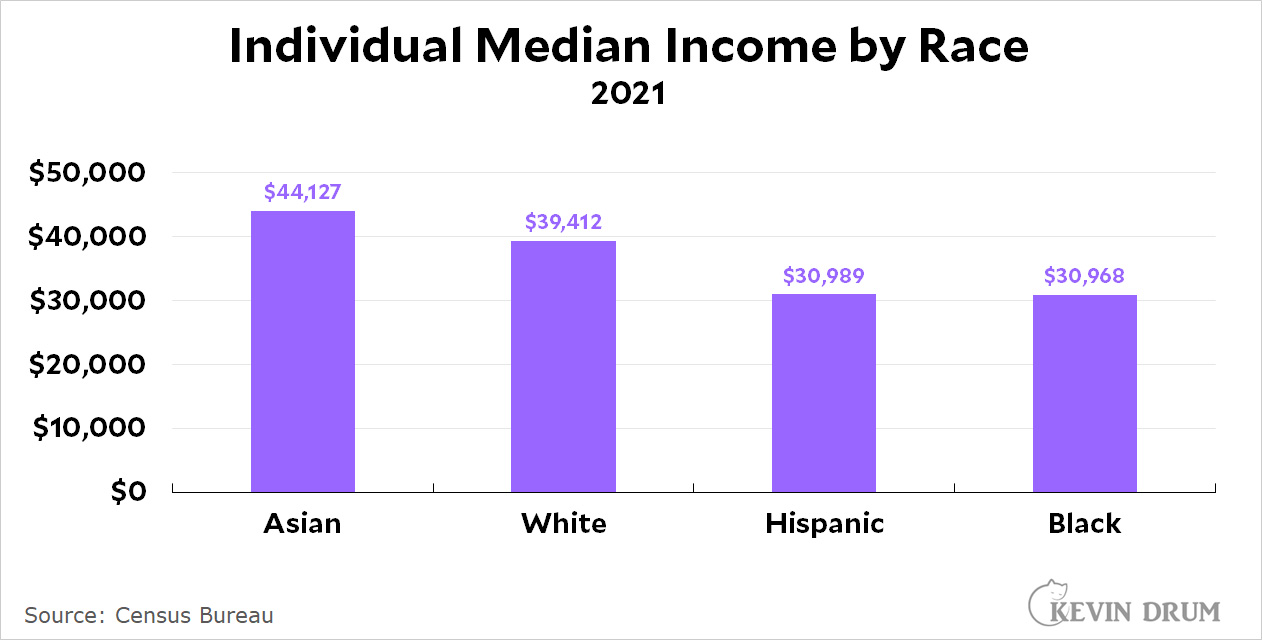
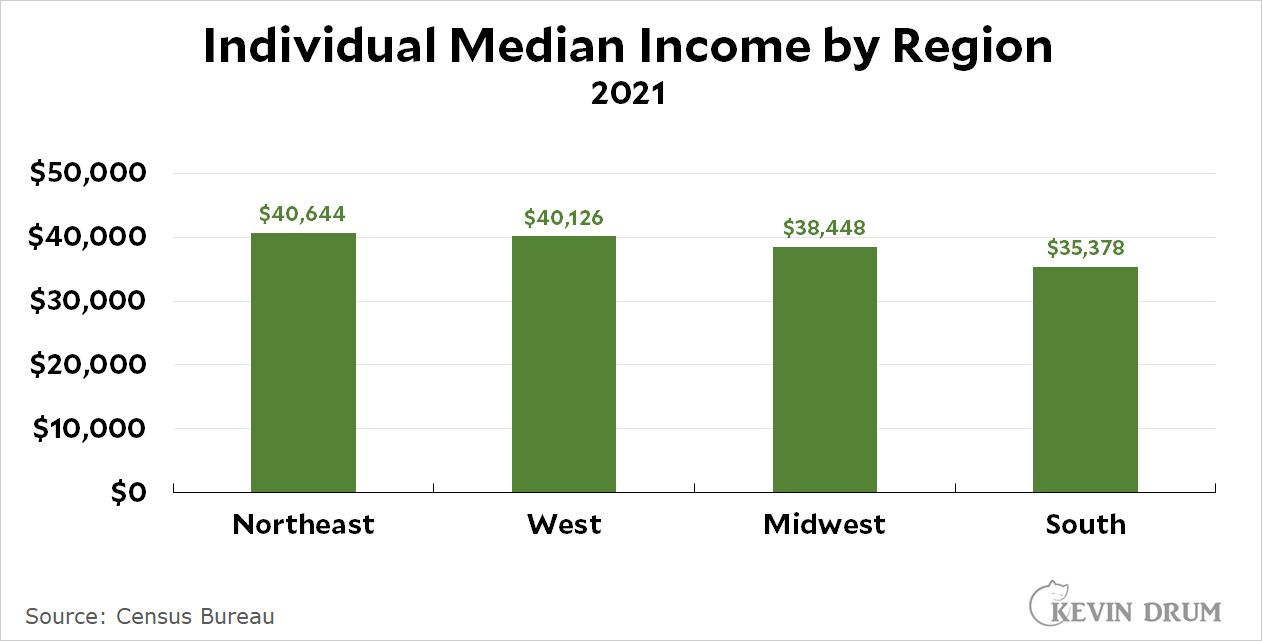
Interesting, thanks!
What's a 2 headed household that is not a family, though? Is just the marital status that decide on whether people are "related"? Even then, I'd be surprised people in LT relationships but not married would over-earn married couples?
Also, in the educational attainment chart, what's "Prof"? I'm asking b/c I'd like to know if MBAs belong to the "Masters" category or the "prof" one...
I'm guessing '2 earner household that is not a family' would be any kind of roommate situation where both roommates have jobs?
"Family" includes households with only one employed person. There are plenty of stay-at-home parents and married couples where only one person is retired.
I think MBAs are still typically qualified as Masters degrees. The Professional degree category is mostly doctors and lawyers, although I think Theology and Architecture might also be included. Not sure where Ed Specialist degrees get categorized, since they are beyond a Masters, but not Doctoral.
I think a lot of unmarried couples do not have children, a lot of folks get married once there are children involved.
Oh my god the more education women have, the more they lag behind their male counterparts.
I can offer some "on the ground" insight, not data, just you know, stuff I see at the academic medical center where I work, plus thoughts from my head.
In the PhD category, women are more likely to be in lower ranked positions in academic institutions. Staff scientists, Assistant and Associate Professors, adjuncts. Department chairs, VPs Presidents etc are more likely to be male
For MDs-and there are data to show this: as women move into various specialties like pediatrics, family medicine, ObGyn, salaries stagnate.
The male to female earning figures, shown above, are insufficient to draw conclusions around the wage gap. Stated differently, difference does not, necessary, mean bias or discrimination.
I am one of those evil MBAs and in my field factors include: include industry selection (investment banking v non profit), function (finance v human resources), time in industry (leave of absence etc), performance etc.
To understand 'difference' you would want similar/same education, job function, firm, performance, etc.
Understanding? You want understanding? Good luck with that...
The people who obsess over this sort of thing have ZERO interest in understanding; the ONLY goal is to trawl through the numbers finding things to complain about.
The points you make have been known for over 50 years – have they made any difference in the public discourse?
One question that must be asked is why are particular functions, for example, paid more or less? Why, for example, should an ObGyn or pediatrician be paid much less than other specialties, like dermatologists?
"Why, for example, should an ObGyn or pediatrician be paid much less than other specialties, like dermatologists?"
Two primary factors
1) supply and demand
2) insurance reimbursement rates
Oh, I'm sorry. I missed the point where I said "bias or discrimination".
I missed the point where I said "bias or discrimination".
You did not claim bias nor discrimination. When you said "the more education women have, the more they lag behind their male counterparts." I THOUGHT you were implying bias or discrimination. Perhaps you were trying to point out that higher educated woman, on average, select, on a relative basis, lower paying professions etc then I missed your point.
"I THOUGHT you were implying bias or discrimination."
Oh. Interesting. Why did you THINK that? Did we have a conversation that I forgot about? Do you know me and I just don't remember us meeting? Or is it because I made factual comments about factual information that could support a conclusion you don't like that I was pushing a certain conclusion?
Every single thing I said is faculty, supported by data. How many women in X, how many women in Y. X is lower paying, Y is higher paying. None of these things say "bias or discrimination". I make a shit ton of money by thw ay, You know why? Because the three guys who held my position before me made 100K more than I was offered when I took it and after I kicked ass for a year it was decided that there was risk to the institution in paying me 100K less than the guys who had the job before I did.
You are now paid what your male counterparts were paid, right?
So what is your complaint?
Do you know what they were paid when they *started* the position, as opposed to *when you took over*? Do you know whether they had in some fashion demonstrated probable competence at the job [eg via earlier work expertience] in a way that you had not?
How much are you projecting the standard "salary rises as you get older, gain experience, and demonstrate competence" (ie young vs old) trajectory as a female vs male trajectory?
Kevin Drum, reminding me once again how horribly underpaid I am.